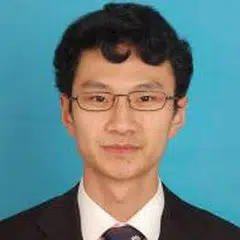[Chinese New Year Special] Family rituals of a Shandong Spring Festival
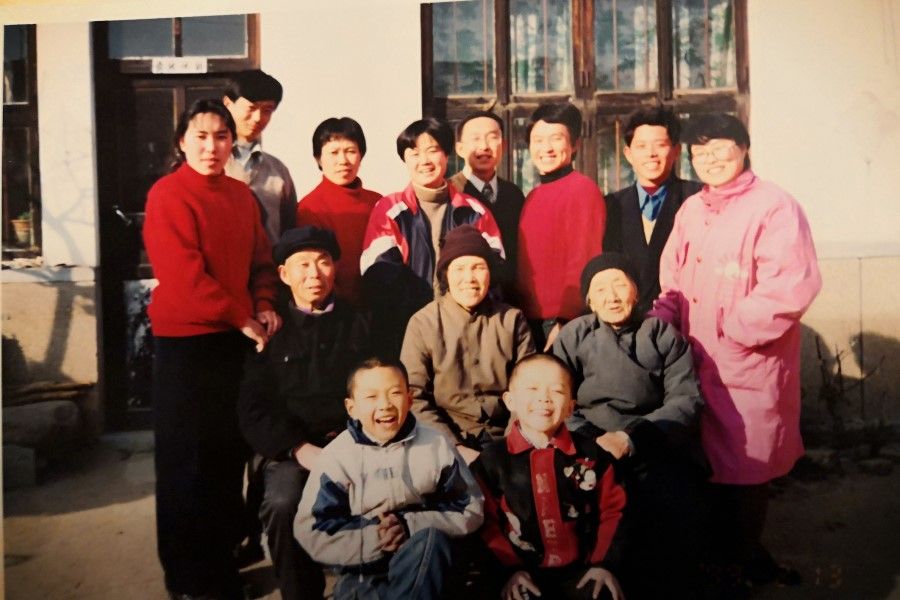
This year, 2020, marks the first time in five years that I am spending Chinese New Year in my hometown Daipan (大泮), a village in Xihai'an New Area or Qingdao West Coast in Qingdao, Shandong. When I think back to my childhood, the ten days or so of celebrating the new year at my paternal grandmother's house were among the happiest times of the year.
My journey home would begin with a long and languid train ride. My parents, both lecturers, used to teach at Shandong University of Science and Technology in Tai'an, situated at the foot of Mount Tai. (Mum is retired now, but Dad is still teaching.) They earned a pittance at their job and we had to economise, so we would spend five to six hours on the slow train to Qingdao, followed by another two hours or more on the long-distance bus to Grandma's village. With the new year rush, the entire journey could take as long as ten hours. But while it was a very long journey, admiring the beautiful scenery along the way was peaceful and relaxing.
An elaborate affair
We usually arrived at Grandma's in the afternoon or at night. Grandpa knew my cousin and I loved firecrackers, so he would prepare a whole arsenal of our favourites. We would think of creative ways of using them: lighting them and putting them in a bottle and covering it, then watching the bottle cap fly off with the explosion; extracting the gunpowder and pouring it in one line, then lighting it and timing it to explode just as an adult was coming out of the toilet; and angling a firework so that it would fly further and go off right over someone's house. With each successful prank, my cousin and I would dance for joy.
Of course, whenever we got up to mischief, Grandpa would remind us not to throw any firecrackers into the wood store, and Dad would also nag us about carelessness leading to accidents. Sometimes, we even threw firecrackers into the chicken coop, and Grandpa would lecture us that the chickens would be frightened off laying eggs.
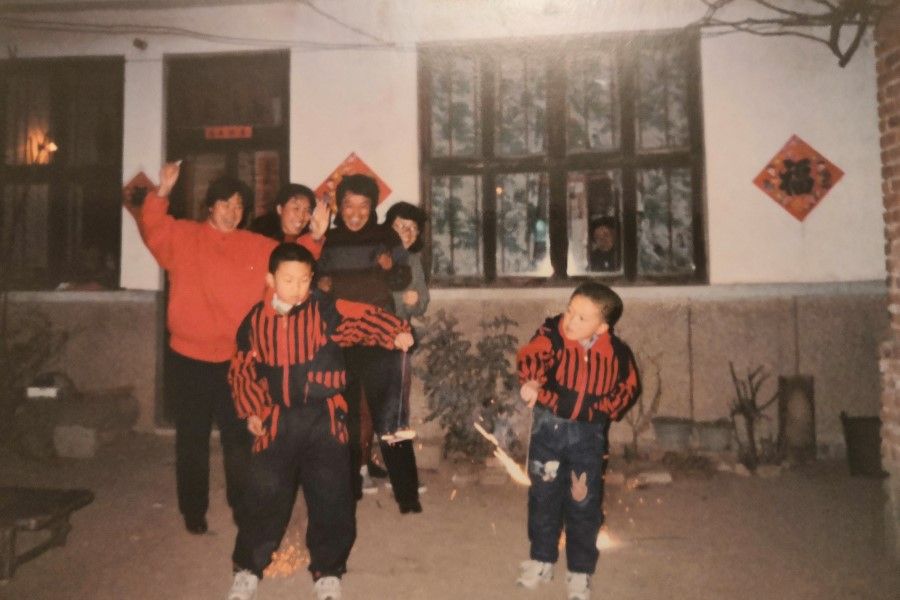
When we got tired of playing with firecrackers, my cousin and I would go to the yard and throw rocks at each other, to see who could find the hardest rocks. Or, we would go to the fields outside the village and hit the dry-grain stalks with sticks, and call it "beating the devil". We also often went to the little store next door to buy sweetmeats and snacks; we knew these were unhygienic junk food, and the adults would scold us, but we couldn't resist.
Reading was one of the great joys of my childhood. It was not everything in my life, but it was definitely a necessary ingredient. The Four Books and Five Classics (四书五经), the bilingual Bookworms (书虫) collection of Western classics and some historical literature (Grandma once bought me The Prince by Niccolò Machiavelli, which was my introduction to political science) - these were all essentials during the summer and winter holidays, and a lot more interesting than homework. Although Dad said no reading during the new year, at the time I really enjoyed it. I felt like I was transcending reality. Today, I still find joy in reading, but because it is now my job, it always feels like there is a mission and a plan, so that feeling of transcendence is not as strong any more.
Visiting ancestors' graves
After sticking couplets around the house, we would head to pay respects to our ancestors. The adults would walk behind carrying bamboo poles to hang firecrackers, while the kids ran on ahead. But even though we were all kids, we did not dare to address one another indiscriminately. Once, knowing that a certain person was the same age as me, I called him "brother" (哥们). Dad laughed and said that going by generational seniority, he ought to call me "grandpa" (爷爷), since I am two generations above him.
... the ceremony is meant to be an admonishment to us, descendants, to treasure every minute of our time and to conduct ourselves properly, so as to bring glory to the family
It is about a 30-minute walk from Grandma's to the ancestral graves. Most of the graves are quite simple, except for one very prominent one that looks like a small underground mausoleum, belonging to a family where someone was made an official. Apparently, there used to be quite a large ancestral hall too, but that was destroyed during the Cultural Revolution. The detailed family register dating back to the time of the Jiajing Emperor (1521-1567) during the Ming dynasty has also been lost, and many records no longer exist.
Paying respects to the ancestors mainly involves burning joss paper, kowtowing, and letting off firecrackers before their graves. And although Dad doesn't say it, I know that the ceremony is meant to be an admonishment to us, descendants, to treasure every minute of our time and to conduct ourselves properly, so as to bring glory to the family; we are not to dishonour the ancestors by wasting time indulging in pleasure or bullying others. This might be why ritual and ceremony (礼, li) plays such a big role in Confucianism. It brings people back to their original selves (反本修古,不忘其初); it nips evil in the bud by working in small ways to change people so that they seek good and stay away from wickedness, even without them realising it (礼之教化也微,其止邪也于未形,使人日徙善远罪而不自知也).
I have not met most of the ancestors that we pay our respects to. The only ones I feel something for are my great-grandparents, the parents of my paternal grandmother. Great-grandfather passed on when I was about seven or eight, while we were still living in Xiangyang in Tai'an. He was a well-known traditional Chinese medicine practitioner. Dad said his medical skills were impeccable, and he was also a highly skilled martial artist. He did not take any money for treating the poor, so even though he was made a landowner when the People's Republic of China was first established, and he was affected by the various national movements (he was jailed during the Cultural Revolution and was later forced to sweep the streets), he was not seriously persecuted by the villagers.
Too bad Great-grandfather felt my father had a hot temper and did not teach him martial arts. Instead, he taught my grandaunt, Grandma's sister. As for his medical skills, Grandma and Dad both only learned the basics. Fortunately, a distant nephew of mine has taken up the mantle. But then, word is that Great-grandfather harnessed his qi when administering acupuncture - nobody seems to have learned that skill.
Back at Grandma's, the women would already have prepared dinner, and the whole family would drink and eat, and switch on the TV, ready to watch the CCTV New Year's Gala, popularly known as Chunwan. After the meal, everyone gathered around, watching TV and wrapping dumplings. The crosstalk items were my favourite. Master comedian Zhao Benshan (赵本山) always made me laugh. Sadly, he is no longer active.
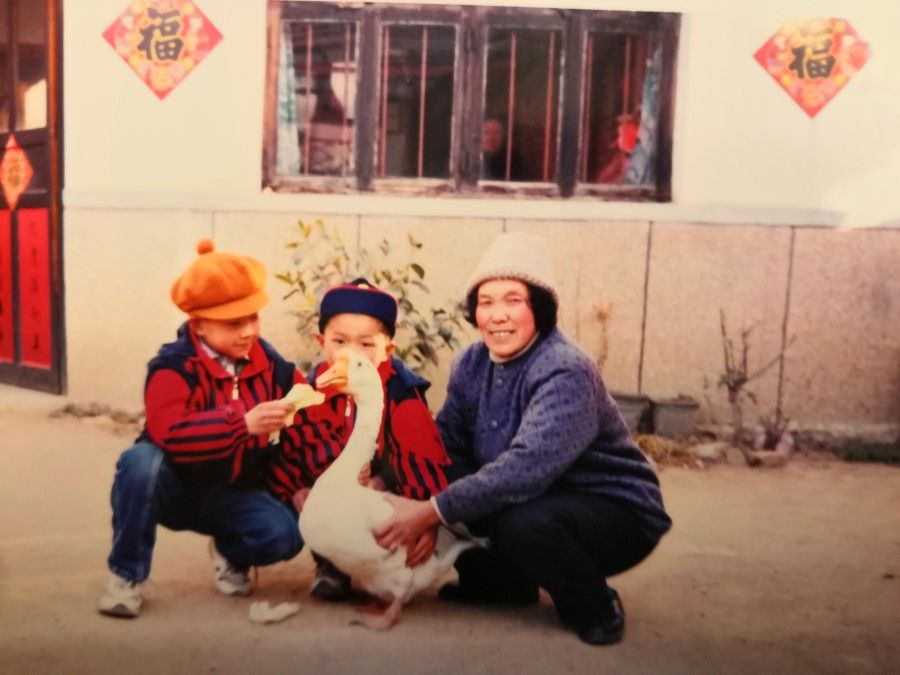
Reunion dinner
Then, at midnight, every household would let off firecrackers - Dad and Uncle would do this outdoors. I would get busy starting a fire with sticks from the sesame plant as kindling; it was a joy to cook over a fire like that. By the time the firecrackers ended, the dumplings would be just about ready, and it was time for the proper reunion dinner. Some of the dumplings had coins and dates wrapped in them, symbolising money or a sweet life for whoever ate them. My cousin and I would compete to see who would find more dates and coins. When the fire went out, we buried sweet potatoes in the embers and waited to savour that special taste. After the reunion dinner, the seniors would give us red packets, usually 20 or 30 RMB, but that amount at the time was worth much more than hundreds or thousands of RMB today.
House visits
The whole family went to bed late on New Year's eve, but woke up early the next morning to go out visiting, which generally meant visits to the homes of seniors or those of the same seniority. Our family was quite high in seniority, so we did not have to knock on too many doors... only about ten or so. Goodness knows how Uncle remembered so many households. One year Uncle didn't come home for new year, and Dad's memory was obviously not as good; we found ourselves visiting families that were not as senior as us, to say nothing of people we didn't even know. Later, Dad excused himself by saying that there were no wrong doors when it came to new year visiting.
So many years later, I still cherish those memories. I miss the childhood innocence, happiness, and sense of ritual.
I don't remember much about most families we visited, but four households do stand out. First, an elderly gentleman who reared mink - I liked the animals, and apparently he made money from them. I also remember the home of the party cadre attached to the village, where I think he had been party secretary for 30 or 40 years. Then there is the home of someone two generations after me; he is actually a few years older than me, and once when I was young I couldn't climb up onto the kang (a heated brick platform for eating and sleeping), and he mocked me: "Grandpa my eye, you can't even climb on the kang." And finally, a cousin of my dad's, where we would usually stay the longest. My cousin studied medicine, but it seems a long time since we met after he graduated from medical school.
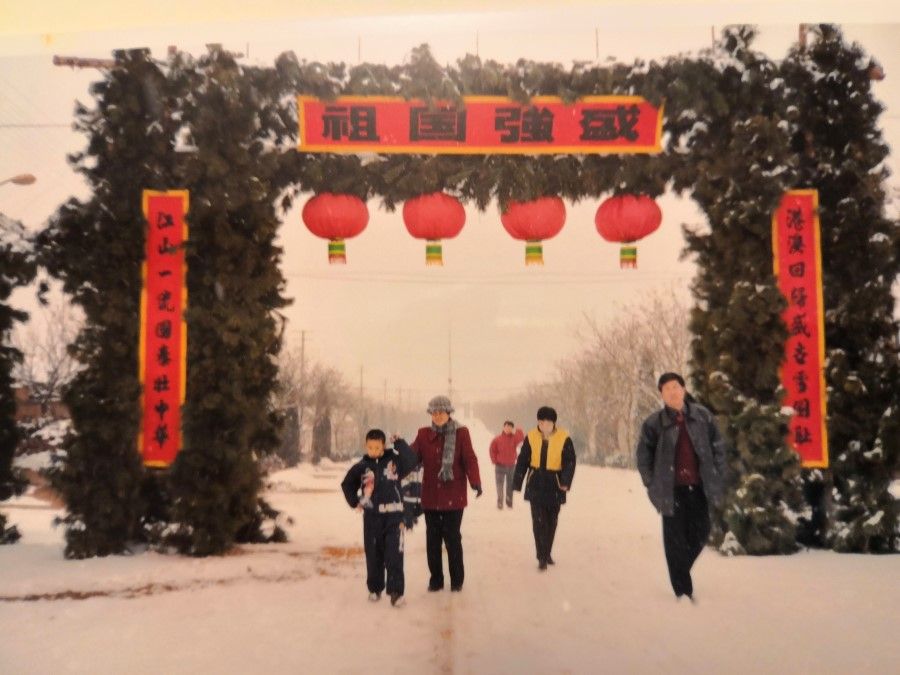
Lunch on the first day of the new year was the most sumptuous meal. Grandpa was the most senior person in the village according to generational seniority, and our closer relations would come and eat at my place that day. The women and children would eat on the kang, while the men would eat and drink alcohol outdoors. This rule didn't seem to apply to my mother though: she generally drank with the men. And as I got older, I also started drinking with the adults. The end of lunch also meant the most ritualistic part of the new year proceedings was done. Next thing was to wait for my three aunts to come home over the next few days. The house was the liveliest when they were around.
So many years later, I still cherish those memories. I miss the childhood innocence, happiness, and sense of ritual. The village has changed a lot now. The roads are all paved with asphalt - the muddy days of my childhood are gone. Exterior walls are mostly painted, with slogans and images on the walls lining the street. But the hole-in-the-ground toilets are not much different than what they were about ten years ago. As a kid, what I liked the least was going to the toilet at the old place, and that hasn't changed. Now, in the chicken coop at Grandma's, there is a little hut that serves as a modern toilet - albeit just symbolically - with a toilet bowl, but without a flushing or drainage system.
Today, the TV at Grandma's has gotten bigger, there are more vehicles in the village, and life is getting more affluent. But there are fewer children playing on the streets, and the pace of life is faster. Also, in the past, my family, my cousins' families and I would stay for about ten days at Grandma's, but there is no chance of that now. There is even a rumour that according to the Xihai'an New Area development plans, this ancestral home might be demolished. And because of their work, Dad and Mum also moved to the New Area, which is only an hour's drive from the village. Along the way, we see scenes of a rapidly developing modern city, and no longer have the luxury of admiring the scenery on a long journey home. And what with constantly thinking about my thesis and issues like China's development, China-US relations and geopolitics, I no longer get the same sense of detachment or enjoyment in reading that I had as a child.
I really wish I could slow down and relive those Chinese New Years, that were rich with family and solemn rituals.
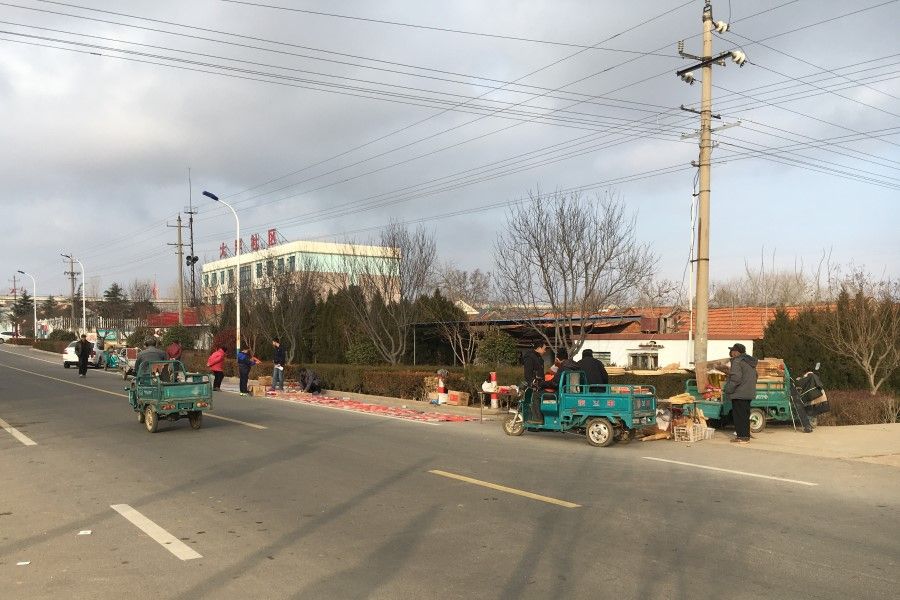
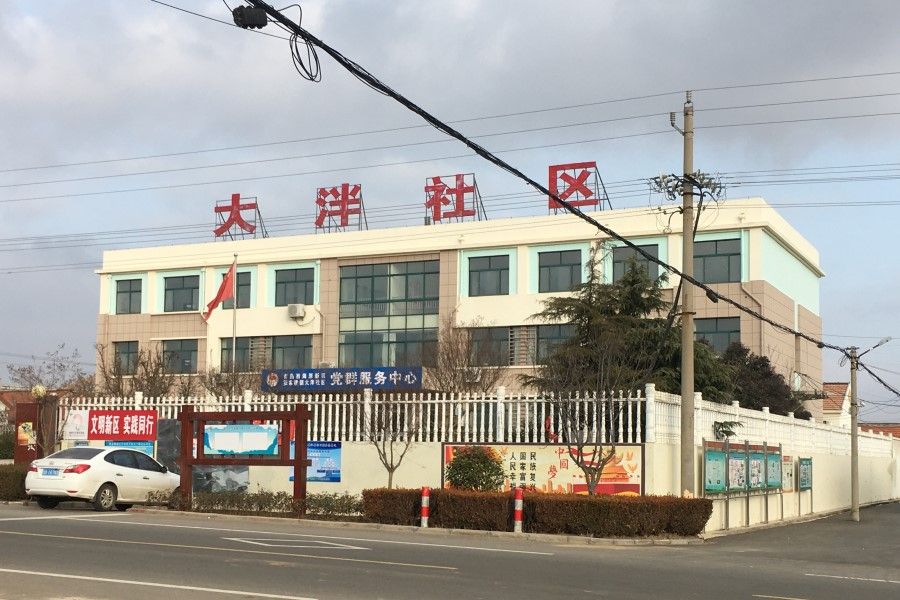
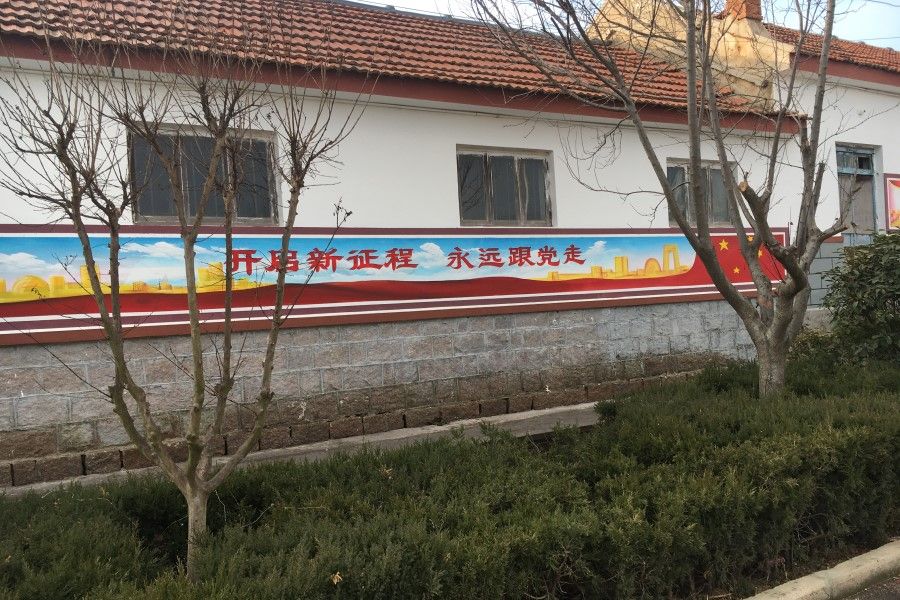
(All photos courtesy of Pang Ruizhi.)
